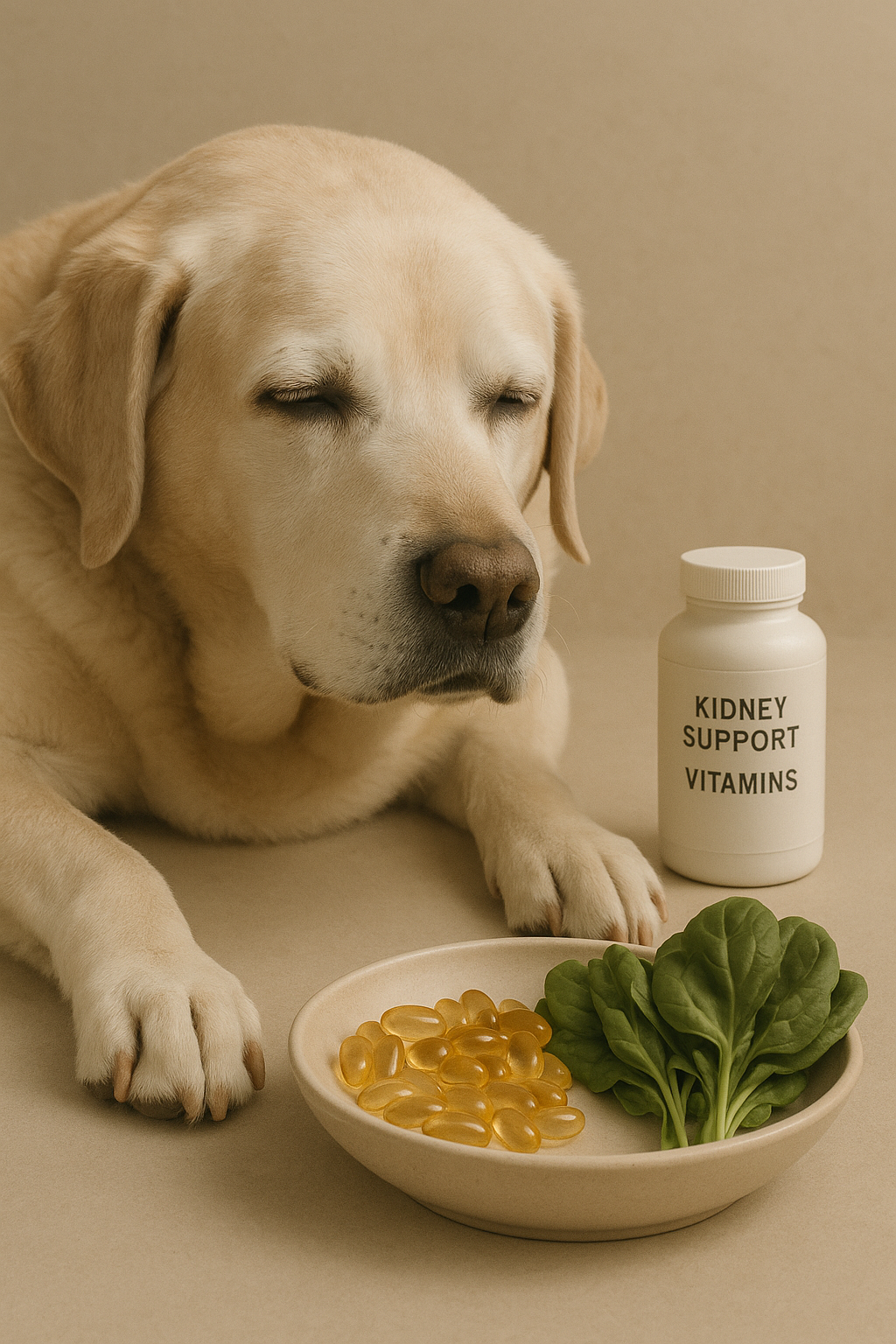
Magnesium is often overlooked in discussions about pet nutrition, yet it plays a vital role in maintaining your furry friend’s overall health. From ensuring strong bones to supporting critical bodily functions, magnesium is essential for pets of all shapes and sizes. In this article, we’ll delve into the importance of magnesium in your pet’s diet, what deficiencies can lead to, and how to ensure your pet gets the magnesium they need.
The Role of Magnesium in Your Pet’s Health
Magnesium is a mineral that serves as a cofactor in over 300 enzyme systems within your pet’s body. These enzymes are responsible for numerous vital processes, including:
- Bone Health: Magnesium works alongside calcium and phosphorus to maintain strong, healthy bones and teeth. It helps regulate the deposition of these minerals, ensuring your pet’s skeletal system remains robust.
- Nerve and Muscle Function: Magnesium is crucial for proper nerve signaling and muscle contraction. It helps prevent muscle spasms and ensures smooth functioning of your pet’s nervous system.
- Energy Production: As a critical component of ATP (adenosine triphosphate), magnesium is essential for energy production at the cellular level, keeping your pet active and full of vitality.
- Heart Health: This mineral supports cardiovascular health by regulating blood pressure and maintaining a steady heartbeat.
Signs of Magnesium Deficiency in Pets
A deficiency in magnesium, known as hypomagnesemia, can lead to a range of health issues in pets. While rare in pets fed a balanced diet, magnesium deficiency can occur due to poor nutrition, underlying health conditions, or excessive loss through the kidneys. Symptoms to watch for include:
- Muscle Weakness or Tremors: Low magnesium levels can lead to muscle spasms or general weakness.
- Loss of Appetite: A decrease in magnesium may cause your pet to lose interest in food.
- Behavioral Changes: Anxiety, restlessness, or signs of stress could indicate a magnesium imbalance.
- Irregular Heartbeat: In severe cases, magnesium deficiency can affect the heart’s rhythm.
If you notice these symptoms, consult your veterinarian promptly. Blood tests can confirm whether a magnesium deficiency is the cause.
Sources of Magnesium for Your Pet
The good news is that magnesium is naturally present in many pet-friendly foods and can also be supplemented when necessary. Here are some excellent sources:
- Animal Proteins: Chicken, turkey, and fish provide magnesium in addition to other essential nutrients.
- Leafy Greens: Spinach, kale, and other greens (in moderation) are good sources of magnesium for dogs and cats.
- Whole Grains: Foods like brown rice and oatmeal, commonly found in pet foods, contain magnesium.
- Fortified Pet Foods: Many high-quality commercial pet foods are fortified with the appropriate levels of magnesium to meet daily nutritional requirements.
When choosing magnesium supplements for pets, it’s crucial to consult your veterinarian to avoid overdosing, which can lead to diarrhea or other complications.
How Much Magnesium Does Your Pet Need?
The appropriate magnesium intake depends on your pet’s size, age, and overall health. Dogs and cats generally require small amounts of magnesium as part of a balanced diet. High-quality commercial pet supplement are usually formulated to meet these needs, but pets with specific health conditions, such as kidney disease or diabetes, may require adjustments.
Magnesium in Pet Supplements
If you’re looking for an additional way to support your pet’s magnesium intake, pet supplements can be a great option. Supplements designed for joint health, calming effects, or muscle recovery often include magnesium as a key ingredient. For example:
- Senior Pets: Supplements with magnesium can support joint mobility and muscle function.
- Active Pets: Magnesium aids in muscle recovery and energy production for highly active dogs or cats.
- Anxious Pets: Magnesium is sometimes included in calming supplements to reduce stress and anxiety.
Final Thoughts
Magnesium may not receive as much attention as other nutrients, but its importance in your pet’s health cannot be overstated. Ensuring your pet gets the right amount of magnesium will help support their bones, muscles, heart, and overall vitality. Always work with your veterinarian to assess your pet’s nutritional needs and make any necessary dietary adjustments.
By staying informed and proactive, you can give your pet the gift of health and happiness, starting with a nutrient as simple yet essential as magnesium.
How Our Factory Supports Your Pet’s Magnesium Needs
At our state-of-the-art manufacturing facility, we specialize in creating high-quality pet supplements that meet your pet’s nutritional needs, including magnesium-rich formulations. From custom chewables to powders, capsules, or liquid supplements, we offer a wide range of customizable options tailored to your brand’s requirements.
With strict adherence to GMP and ISO certifications, our production processes ensure purity, safety, and efficacy in every product we manufacture. Our in-house R&D team can work with you to develop unique magnesium-enriched formulas designed to support pets’ bone health, muscle function, and overall wellness.
Whether you’re looking to launch a new product or expand your existing line, our full-service manufacturing capabilities—including custom formulation, packaging design, and private labeling—make us your ideal partner for premium pet nutrition supplements. Let’s work together to keep pets healthy, happy, and thriving!



